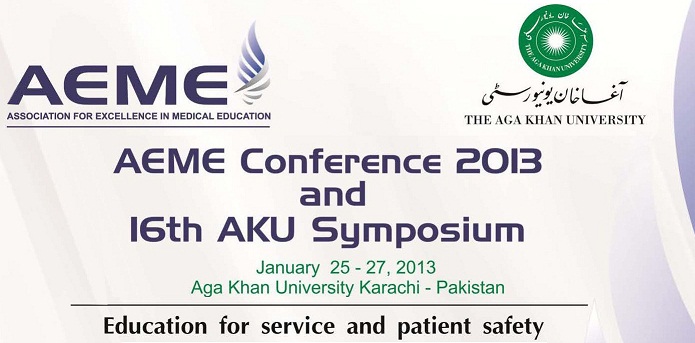Day 1 : Poster Presentations (Theme: Teaching and Learning)
Use of power lab and lab tutor in undergraduate medical education laboratory teaching
Location
Auditorium Pond Side
Start Date
26-1-2013 3:30 PM
Abstract
Background: Physiology teaching, especially laboratory exercises, in the undergraduate medical curriculum has evolved considerably due to the introduction of problem-based learning, computer-based data recording systems and availability of simulated software
Methods: The use of PowerLab, a highly sophisticated and powerful data recording system, was introduced in AKU in 2009. Recently, a more user-friendly html based software called LabTutor (AD Instruments, Australia) has been adopted, which provides experimental background, recording, analyses, report generation and student question sheets all in one package.
Results: These data acquisition systems have largely replaced old fashioned oscilloscopes, kymographs, chart recorders, and polygraphs due to ease of use, economy of cost, space, maintenance and consumables. Additionally, major criteria for equipment used in human physiology experiments are human safety and hygiene. In this regard, use of PowerLab and LabTutor ensures that Physiology and Pharmacology lab teaching in the undergraduate medical curriculum meets international standards. As per informal student feedback, the use of data acquisition systems also improves contextual learning of basic science concepts.
Conclusions: Computer-based data recording systems provide students’ hands-on state of art exposure in basic sciences and are now indispensible tools for medical education
Keywords: Laboratory teaching “Computer-based data recording”, “PowerLab”, “LabTutor
Use of power lab and lab tutor in undergraduate medical education laboratory teaching
Auditorium Pond Side
Background: Physiology teaching, especially laboratory exercises, in the undergraduate medical curriculum has evolved considerably due to the introduction of problem-based learning, computer-based data recording systems and availability of simulated software
Methods: The use of PowerLab, a highly sophisticated and powerful data recording system, was introduced in AKU in 2009. Recently, a more user-friendly html based software called LabTutor (AD Instruments, Australia) has been adopted, which provides experimental background, recording, analyses, report generation and student question sheets all in one package.
Results: These data acquisition systems have largely replaced old fashioned oscilloscopes, kymographs, chart recorders, and polygraphs due to ease of use, economy of cost, space, maintenance and consumables. Additionally, major criteria for equipment used in human physiology experiments are human safety and hygiene. In this regard, use of PowerLab and LabTutor ensures that Physiology and Pharmacology lab teaching in the undergraduate medical curriculum meets international standards. As per informal student feedback, the use of data acquisition systems also improves contextual learning of basic science concepts.
Conclusions: Computer-based data recording systems provide students’ hands-on state of art exposure in basic sciences and are now indispensible tools for medical education
Keywords: Laboratory teaching “Computer-based data recording”, “PowerLab”, “LabTutor

